HearStory
I love a good story, but I don't have much time to read. And I'm not very good at it: sit me down in a chair with a good book and I'll soon become very sleepy -- rereading sentences and paragraphs over and over. I'm much better at listening to a story and I think the discipline required to follow a narrative via hearing it is good exercise for the brain.
I mentioned in my Introduction that my new hobby is converting books -- usually old, long out of print, and hard to come by physically -- into audio format. I want to share that process with you here in case you may see a value in doing it yourself.
The first step is to find, or produce, the text. I often find the books I want to hear at archive.org . I do check sites like Librovox.org first, to see if there is already a free audio version of the book that I want to hear.
Most of the books I want to hear/read are old and out-of-print and the versions that I find on the internet are usually in PDF file format consisting of scanned images of the pages from the book. Here is an example from the book I am currently working on, A History of Banking In All The Leading Nations Volume 1:
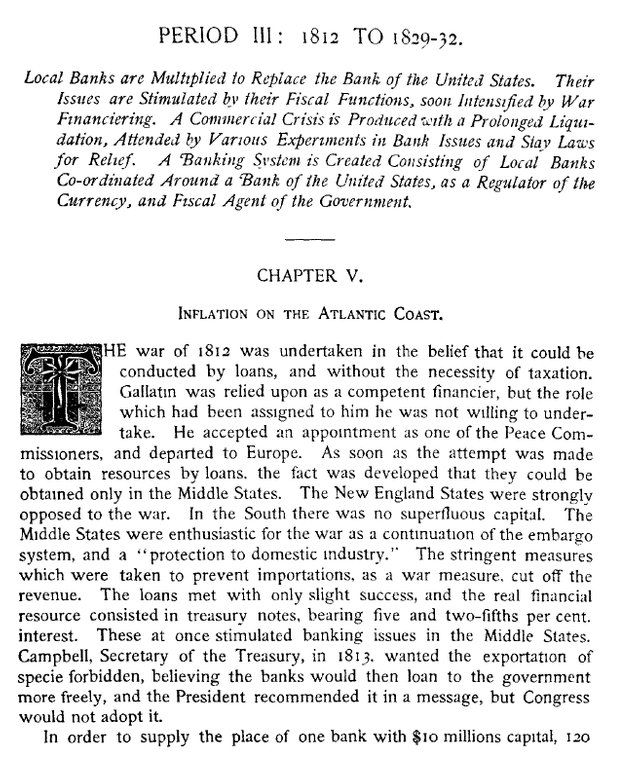
I downloaded the PDF file for the book and converted it from scanned images into plain text using Adobe Acrobat's export PDF function. Here is what the above image of a page looks like after Acrobat converts it to editable text.:
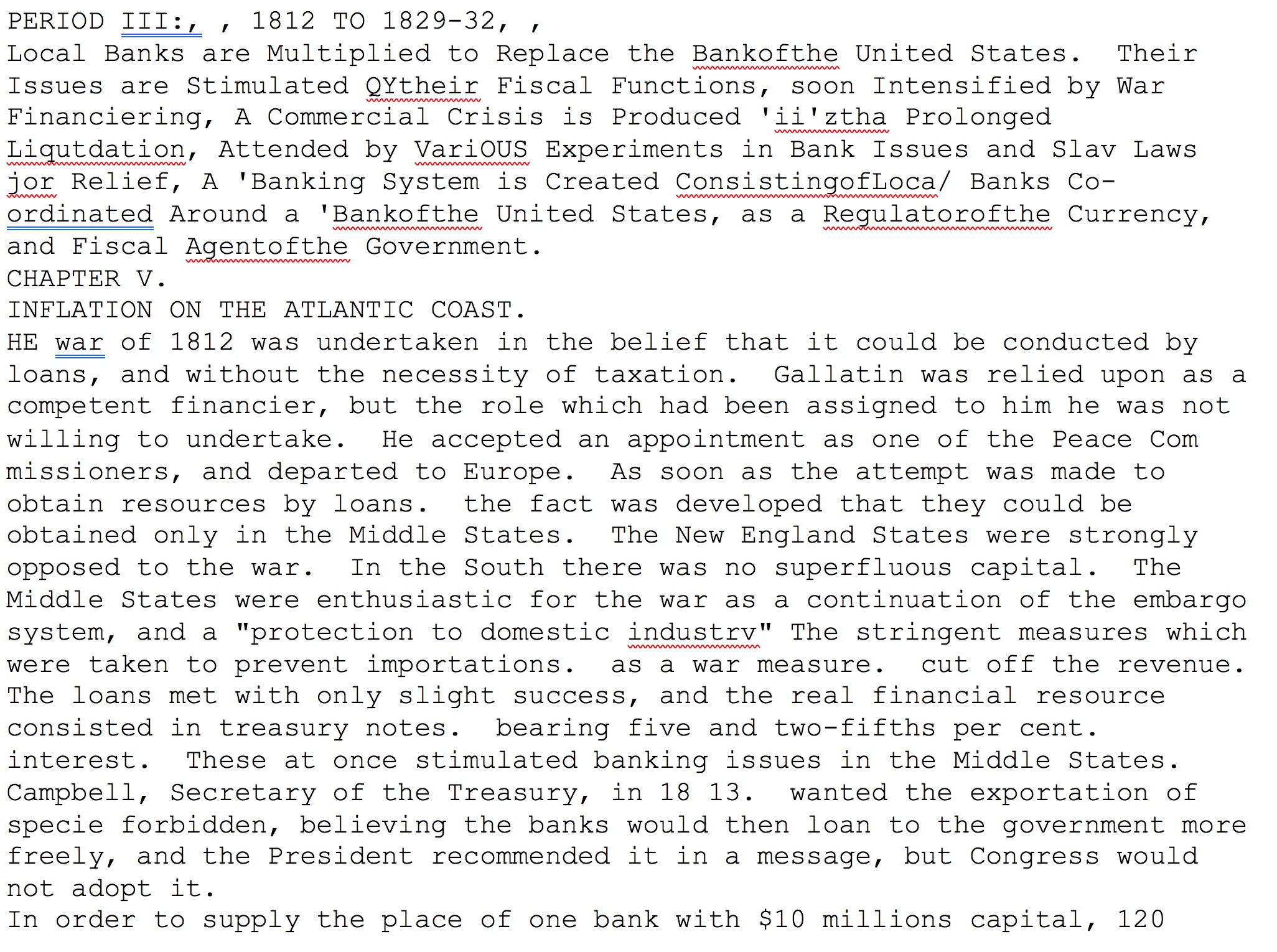
If you know of software that can do a better job of converting scanned pictures into editable text, please let me know via the comments. Depending on the quality of the book that was used as the source for the scanned images, you will have a lot or a little work to do to clean up the mistakes and misinterpretations that occur when going from picture to text. I just roll up my sleeves and start correcting and preparing the text for conversion to audio. Often, patterns of errors are easily recognized and repaired using the search and replace utility. In places where I want the reader to pause or slow down, I'll insert extra commas, as in ,(space), so the text doesn't fly by so fast when read. I remove redundant page headings and page numbers and move Footnotes to the locations where they are referenced in the text so they are read in context.
I'm using the NaturalReaders software to convert the text to audio. There may be better products on the market and, if you know of one, please share it in the comments.
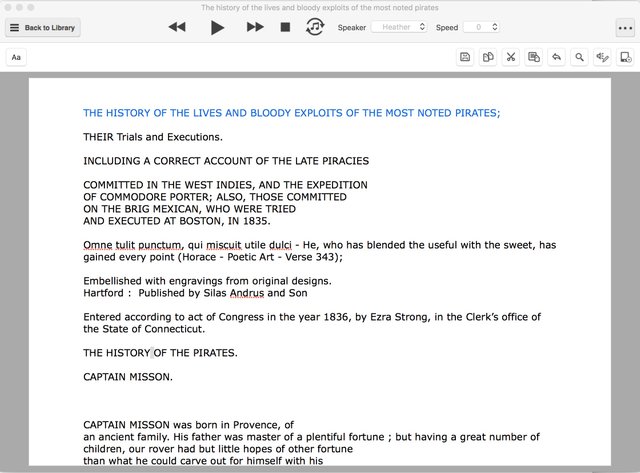
NaturalReaders creates a .aiff file, and I convert this to a .mp3 file using Audacity.
It is a bit of work, true, but well worth it in the long run, I think, as the effort is leveraged by all future hearers. Here is my page on Archive.org:
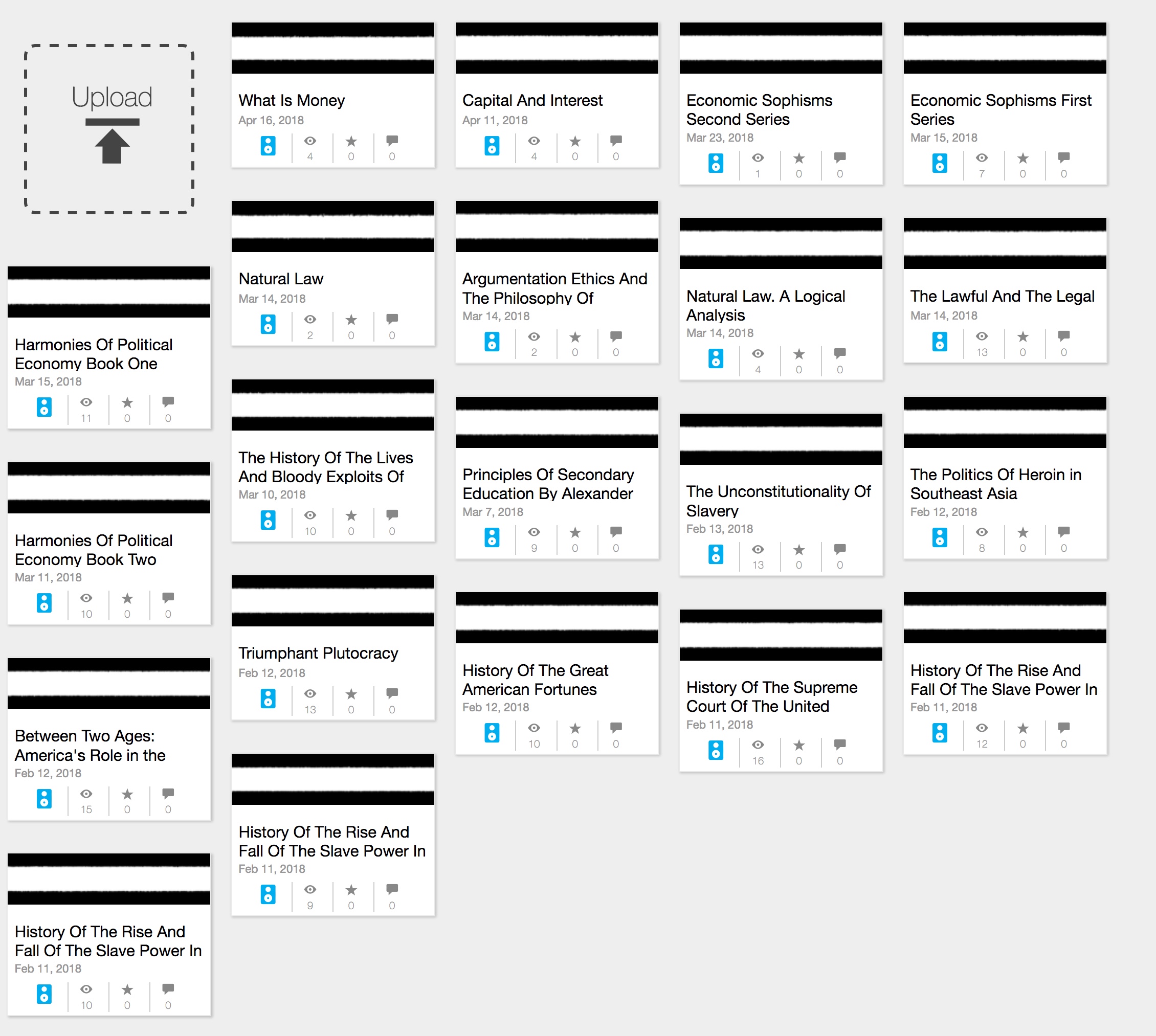
By adding the correct tags to the audio files uploaded, it is possible to get them associated with the original text. For example, because I added thebastiatcollection tag to the audio files I converted from that source, they now appear as part of the search results for The Bastiat Collection:
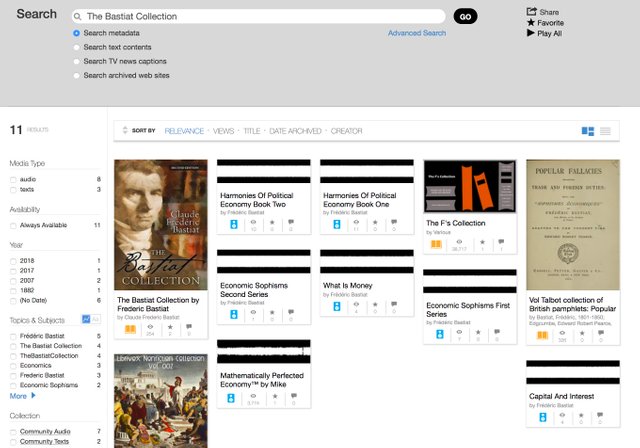
I'm really enjoying listening to the books that I don't have time to read!
Visit me at @paulmozina, The Buckthorn Man or at Scuppernong Springs Nature Trail.
Thanks!